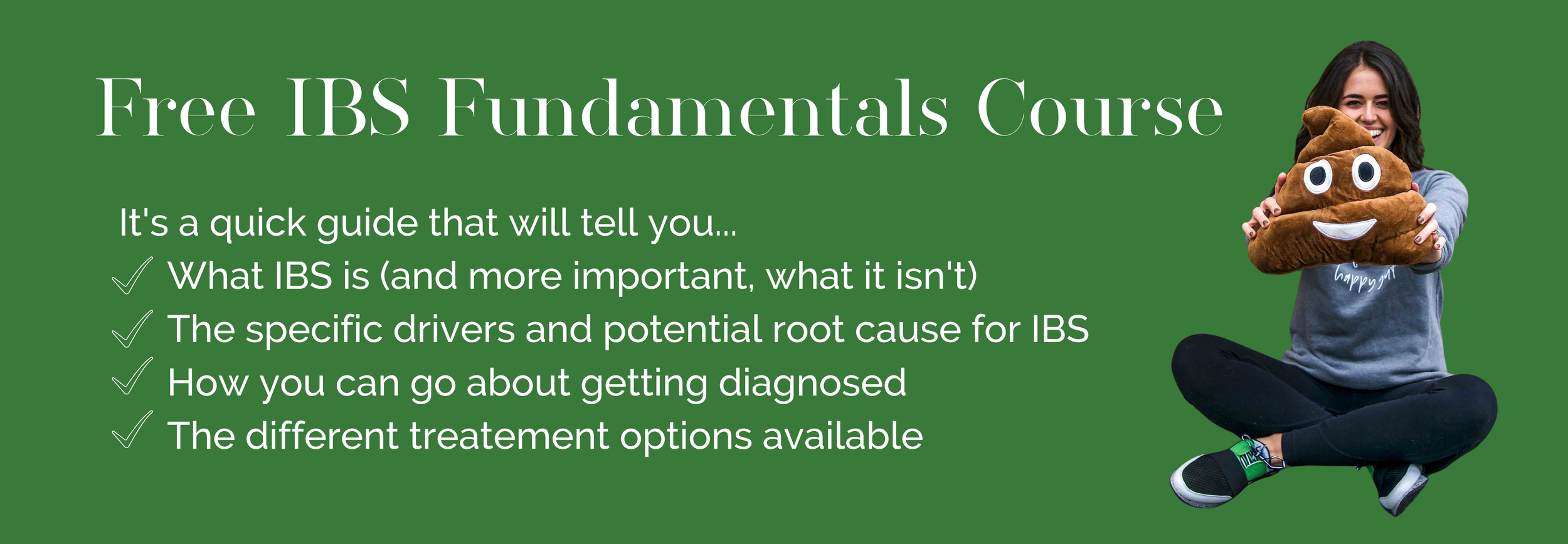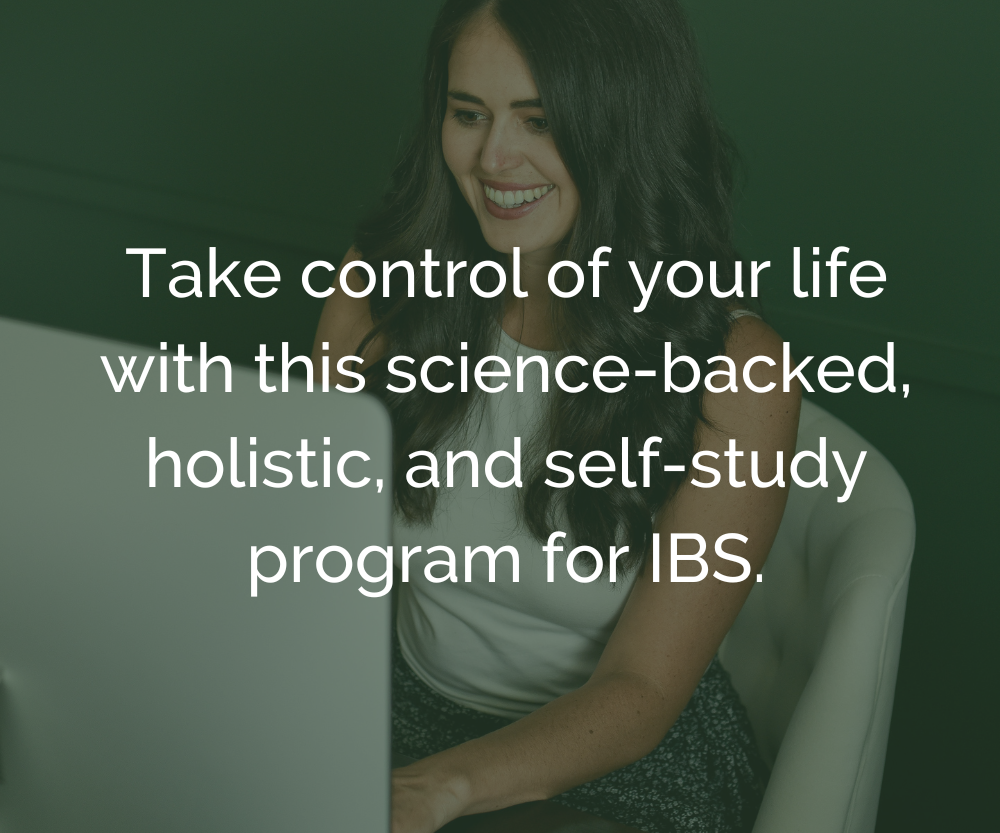5 Ways To Keep IBS Symptoms Down With a Busy Schedule
We live in a fast-paced culture that celebrates how busy we can make ourselves. It’s no surprise that this way of living can be hard on the gut. With IBS, busy schedules typically lead to more stress and less focus on the pieces that keep symptoms at bay, including sleep schedules, meals, stress management, exercise, and so on. With a lack of consistency in routines and intention, the gut becomes a bit more irritable, which can lead to an increase in symptoms and flares.
Instead of letting your busy schedule get the best of your gut, implement these 5 practices to stay on top of your symptoms, while enjoying the pace of your life!
Prioritize Sleep
Your circadian rhythms are key to keeping your digestive system running smoothly, and helping your poop schedule stay on track. (Learn more about this connection here!)
When your schedule is busier, prioritizing your sleep schedule will help you keep your digestion on track, as well as support your mental and emotional health. This will take some discipline, so plan a bedtime and wake time, then keep it consistent each day. If you have trouble sleeping, or feel like you’re never fully rested, then you may benefit from additional training in this area, which we offer through the MASTER Method.
Reduce Distractions
When the schedule is busy, a common excuse for not keeping up with habits or routines is “I don’t have time.” Many times, this statement is accurate, so you have to give yourself grace for where you currently are. Other times, this statement isn’t 100% accurate, because if you look at your day to day activities you may find that you do have the time, but the time isn’t being spent well. As I write this, I cringe a little bit because I know that I do this so much, so know you aren’t alone here.
One way to start opening up mental and physical space in your schedule, in order to implement the habits you know will serve your gut, is to reduce distractions that take up your free time. This can include scrolling social media, chatting in the break room with coworkers, watching TV, and many more. These distractions aren’t bad or completely unnecessary, as many of them serve important roles of connecting to others and letting your brain rest. The key is to avoid the distraction(s) from taking over all of your free time, which then prevents you from doing what you need to for your body. Reduce these by setting timers of how long you’ll engage in the activity, choosing to do your prioritized activities before engaging in the distractions, and/or setting boundaries to avoid the habit of engaging in the distraction with every break. Boundaries could look like putting your phone in another room, turning off email/social notifications on your phone or computer, and reducing trips to the break room by having your drinks and snacks at your desk.
Start With Mindfulness
One of the very best ways to optimize your time each day is to be fully present in your day. When you are present, you become more aware of what your body needs from you, so that you can make intentional choices that will serve your body well. When a day is busier and a schedule is more full, being present can be more challenging. One way to increase your presence is to start your day with mindfulness and connection to yourself.
One way to do this is to add in breathwork and meditation to your morning. This could be through a yoga flow, guided meditation app, journaling and reflection, self-led breathwork, and/or prayer. The goal with mindfulness isn’t to do the exact same thing others are doing. Instead, the goal is to connect to your body in a way that you enjoy. This is a habit that can take some trial and error to begin, and then take daily practice to start seeing the effects from. Start with 2-3 minutes of mindfulness today, then build from there to find what works best for you.
What’s your poop personality? Find out here!
Plan Ahead
A busy schedule means there’s a higher need for organization. Planning ahead allows you to look at your schedule in advance and plan what is needed to get things done and take care of yourself. Not only will this help you reduce symptoms because you are getting in the habits that help your gut, it will also help reduce stress from feeling disorganized.
Planning ahead could look like laying out your schedule at the start of the week so that you can block out time for the major things you need to accomplish, and for the habits you want to add in. Planning could also include looking ahead at your weekend to include time to recharge, as well as time to meal prep for the next week.
Keep Meals Simple
If your schedule is packed, don’t add more stress with complex meals. Keep meals and the process of making meals, including shopping and cooking, as simple as possible. This will help you stay on track with eating enough and enjoy the foods you know serve your gut, as well as reduce any stress involved in the process. For buying, simplify the process by planning meals that incorporate similar ingredients so you don’t have to worry about a huge list. To save more time and streamline the process, order your groceries and have them delivered to your house! My favorites for this are Instacart and Thrive Market.
You can also simplify meals by simplifying the meal prep process. If you know time is a barrier, buy a plain rotisserie chicken, 90 second rice, steam-in-bag vegetables, pre-cut vegetables, low FODMAP sauces, and other convenience items that save time. This may not always be the best way to go, but can be helpful during weeks where your schedule is more packed.
Try eliminating meal prep all together by having prepared meals delivered right to your door! With Epicured, my favorite meal delivery service for IBS, you can plan your meals in advance each week and always have something gut-friendly on hand. All of Epicured’s meals are low FODMAP and gluten-free (and absolutely delicious!). Meals arrive freshly prepared and ready to eat. Save $20 off your first order with code Erin20!
Instead of letting a busy schedule spiral into IBS symptoms, try out the 5 practices above to care for yourself mentally, physically, and emotionally. I’d love to hear what tip you find the most helpful, so leave a comment below and let me know!
Are you frustrated with your IBS symptoms? Do you desire to be confident in your food choices? Do you want to have a healthier relationship with your body and diet? Are you ready to take control of your IBS?



